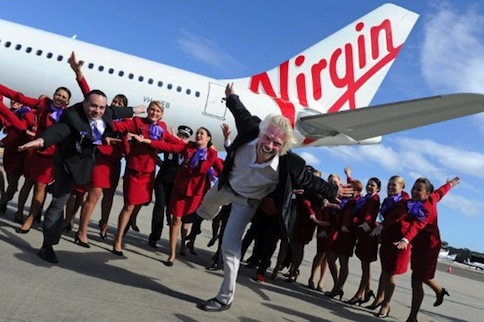SYDNEY, Aug 5 — Virgin Australia Holdings Ltd., Australia’s second-largest carrier, lost as much as A$110 million (RM317.6 million) in the year ended June 30 as carbon costs and the transition to a new booking system eroded profits.
Costs including moving to the Sabre ticketing system will total A$100 million this year, including A$36 million already announced at first-half results in February, the Brisbane-based carrier said in an unaudited forecast filed today.
It’s the second time in three months that Virgin has cut its forecast for 2013 earnings, for which analysts expect net income of A$21 million, according to the average of eight estimates compiled by Bloomberg. Backed by major shareholders including Singapore Airlines Ltd., Air New Zealand Ltd., and Etihad Airways PJSC, Virgin has vowed to take on Qantas Airways Ltd.’s dominance of Australia’s domestic market, of which the first-ranked carrier holds 65 per cent.
While “today’s update is disappointing,” the one-time costs taken this year will benefit the airline in the long term, John Borghetti, chief executive officer, said in the statement. “We now have the right platform in the Australian market to generate sustainable earnings benefits.”
Virgin shares fell 5.5 per cent, their biggest drop since their last earnings forecast on May 16, to 43 Australian cents at 10:22am in Sydney.
Net loss
Virgin’s net loss will be in the range of A$95 million to A$110 million, while the loss before tax and one-time items will be A$30 million to A$50 million, the company said. It had also seen weaker sales as a result of moving to a ticketed system, which means some revenues are booked later than they were under the ticketless system, according to the statement.
The airline has bought rural carrier Skywest and a 60 per cent stake in Tiger Airways Ltd.’s loss-making local unit to add capacity to compete with Qantas.
Yield, a measure of ticket prices, increased in June compared to a year earlier, and the proportion of seats filled rose to 74 per cent from 69 per cent the previous month, the carrier said. Local capacity growth in the six months through December will be in the range of 3 per cent to 4 per cent.
Carbon pricing will also cost A$45 million to A$50 million, which the airline wasn’t able to recover in higher ticket prices due to competition and weak demand, the carrier said. — Bloomberg






















